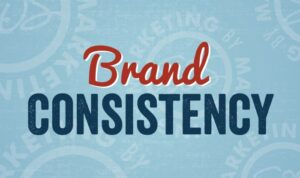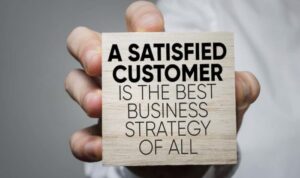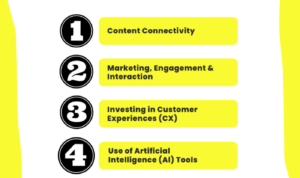SEO for E-commerce Websites – for E-commerce Websites sets the stage for this enthralling narrative, offering readers a glimpse into a story that is rich in detail with american high school hip style and brimming with originality from the outset.
When it comes to running a successful online store, having a solid strategy is key. From increasing visibility to driving organic traffic, plays a crucial role in the e-commerce world. Let’s dive into the world of for E-commerce Websites and discover how you can take your online store to new heights.
Importance of for E-commerce Websites
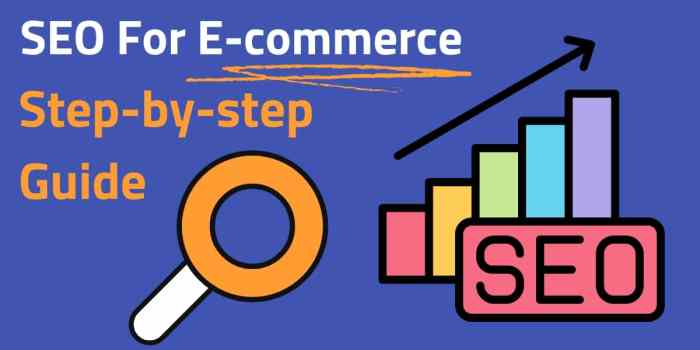
In today’s digital age, having a strong online presence is essential for the success of e-commerce websites. This is where Search Engine Optimization () plays a crucial role in ensuring that your website ranks high on search engine results pages (SERPs) and attracts organic traffic. helps e-commerce websites increase their visibility online by optimizing their content, meta tags, and backlinks to align with search engine algorithms.
By doing so, websites can improve their chances of appearing at the top of search results when potential customers search for relevant products or services.
Increased Visibility and Organic Traffic
- enhances the chances of your e-commerce website ranking higher on search engine results pages (SERPs), making it more visible to potential customers.
- By optimizing s, meta descriptions, and title tags, helps drive organic traffic to your website, increasing the likelihood of converting visitors into customers.
- Effective strategies can also improve the user experience on your website, leading to higher engagement and repeat visits from satisfied customers.
Examples of E-commerce Websites Benefiting from , SEO for E-commerce Websites
- Amazon: By implementing robust strategies, Amazon has secured its position as the leading e-commerce platform globally, attracting millions of visitors daily.
- Etsy: This online marketplace for handmade and vintage goods has leveraged to target niche markets and drive organic traffic to its sellers’ products.
- Walmart: Through effective practices, Walmart has optimized its online presence to compete with other e-commerce giants and attract a wide range of customers to its website.
On-Page Techniques for E-commerce Websites: SEO For E-commerce Websites
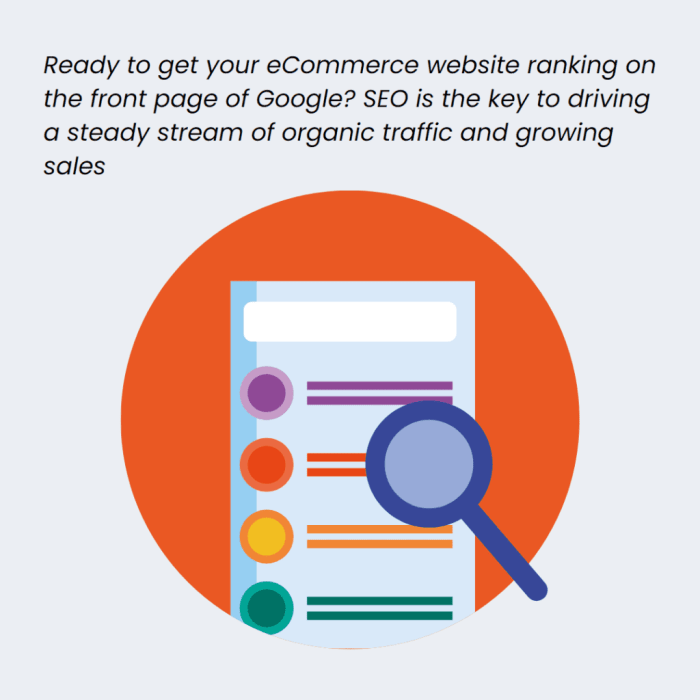
In the world of e-commerce, having a strong online presence is crucial for attracting customers and driving sales. One way to improve your visibility on search engines is through on-page techniques specifically tailored for e-commerce websites. By optimizing various elements on your website, you can enhance your search engine rankings and increase organic traffic.
Optimizing Product Pages
When it comes to e-commerce websites, product pages play a vital role in attracting customers and converting leads. Here is a step-by-step guide on how to optimize your product pages for better search engine rankings:
- Choose relevant s: Conduct research to identify relevant s that your target audience is searching for. Incorporate these s naturally into your product titles and descriptions.
- Optimize meta tags: Write compelling meta titles and descriptions that accurately describe your products and include relevant s. This will improve click-through rates and help search engines understand the content of your pages.
- Create unique product descriptions: Avoid using generic product descriptions provided by manufacturers. Write unique and informative product descriptions that highlight the features, benefits, and unique selling points of each product.
- Optimize URLs: Use -friendly URLs that include relevant s and accurately describe the content of the page. Avoid using complex URLs with unnecessary parameters.
- Add high-quality images: Visual content plays a significant role in e-commerce. Use high-quality images that showcase your products from different angles and include alt text with relevant s.
- Optimize for mobile: With the increasing use of mobile devices for online shopping, ensure that your product pages are optimized for mobile users. Use responsive design and fast-loading pages to provide a seamless shopping experience.
By following these on-page techniques, you can improve the visibility of your e-commerce website on search engines and attract more organic traffic to your product pages.
Off-Page Strategies for E-commerce Websites
When it comes to off-page strategies for e-commerce websites, there are several tactics that can be implemented to boost visibility and drive more traffic to your online store.One crucial aspect of off-page is backlink building. Backlinks are links from other websites that point back to your e-commerce site. These links act as a vote of confidence in the eyes of search engines, indicating that your site is reputable and valuable.
The more high-quality backlinks you have, the higher your site is likely to rank in search engine results pages.
Significance of Backlink Building
- Backlinks help search engines discover and index your site faster.
- Quality backlinks can improve your site’s authority and credibility.
- Backlinks can drive referral traffic to your e-commerce site.
- Building a diverse backlink profile can help protect your site from algorithm updates.
Role of Social Media in Off-Page
- Social media platforms can be used to promote your e-commerce site and attract more visitors.
- Engaging with your audience on social media can help build brand awareness and loyalty.
- Sharing your products on social media can lead to increased visibility and potentially more conversions.
- Social signals from platforms like Facebook, Twitter, and Instagram can impact your site’s search engine rankings.
Mobile Optimization for E-commerce
In today’s digital landscape, mobile optimization is crucial for e-commerce as more and more users are shopping online using their mobile devices. With the increasing use of smartphones and tablets, having a mobile-friendly website is essential to reach a larger audience and provide a seamless user experience.
Best Practices for Mobile-Friendly E-commerce Websites
- Implement a responsive design that adapts to different screen sizes and resolutions.
- Optimize images and videos for faster loading times on mobile devices.
- Ensure easy navigation with clear and concise menus and buttons for touchscreen interaction.
- Minimize pop-ups and interstitials that can hinder the user experience on mobile.
- Enable accelerated mobile pages (AMP) to improve page loading speed on mobile devices.
Impact of Mobile Page Speed on Rankings and User Engagement
Mobile page speed plays a significant role in rankings and user engagement for e-commerce platforms. Slow loading times can lead to higher bounce rates, lower conversion rates, and decreased visibility in search engine results. By optimizing your website for mobile devices and improving page speed, you can enhance user experience, boost rankings, and ultimately drive more traffic and sales to your e-commerce site.

